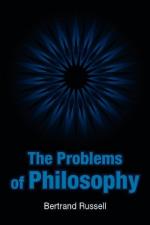|
This section contains 541 words (approx. 2 pages at 400 words per page) |

|
Chapter 12, Truth and Falsehood Summary and Analysis
Our knowledge of truth has an opposite—error. We cannot have erroneous knowledge of things, since whatever we are acquainted with must be actually something. Knowledge by description therefore admits of a dualism. However, often false beliefs are held as strongly as true ones, so how are we to know whether our beliefs are in error? There is no totally satisfactory answer, but let us first understand what we mean by truth and falsehood.
Three conditions must be met by any good theory of truth: (1) the theory of truth must admit of falsehood; (2) if there were no beliefs, there would be no falsehood or truth; (3) the truth or falsehood of a belief always depends on something outside the belief itself. Thus, if we say that "Charles I died in his bed" is true, we...
(read more from the Chapter 12, Truth and Falsehood Summary)
|
This section contains 541 words (approx. 2 pages at 400 words per page) |

|




